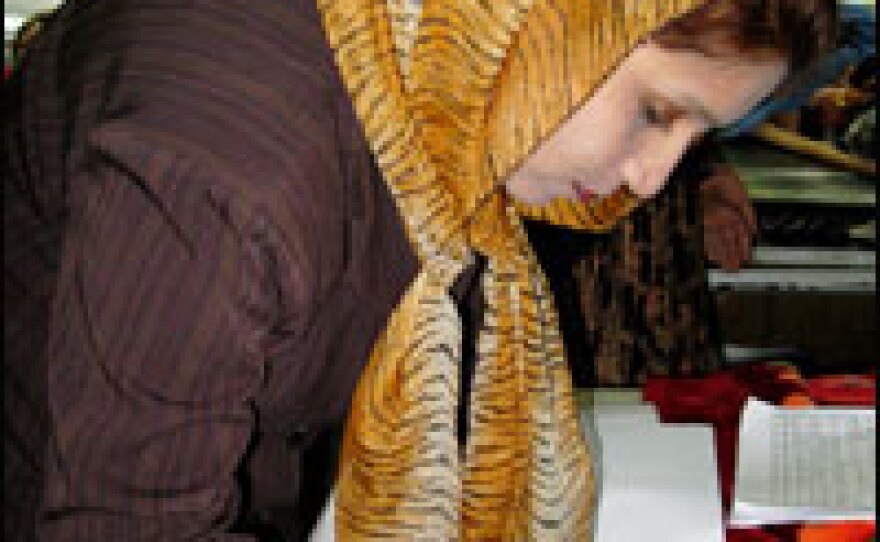
If you ask people in Afghanistan how old they are, you are likely to get a vague response.
Many will tell you they are "around" a given age. Others may give you a range of years. Such vagueness is not due to vanity, nor to any objection to the question. Instead, it is because many people in Afghanistan do not actually know how old they are.
Officials in the Afghan government are trying to change that. Starting this spring, they have been issuing their youngest citizens something most people in Afghanistan have never seen: a birth certificate.
Starting With Kabul
At the moment, Kabul is the only place in Afghanistan where every newborn baby is being registered, including those who are born at home.
The Afghan government, with United Nations help, hopes to do the same for newborns all over the country by the end of 2009. If they succeed, it will be the first time this has happened in Afghan history.
Currently, the government says less than 1 percent of Afghans have a birth certificate.
Najibullah Hameem is a child protection specialist in Kabul with UNICEF, the body funding the birth certificate drive.
"Having identity, proper identity is eveybody's human right," Hameem says. "This is something which is lacking in Afghanistan. By registering births, we are solving so many problems."
The government hopes the program will help ensure all children are vaccinated and receive those shots at the right age. It is also intended to give the government an accurate tally of its youngest citizens, so enough schools can be built.
Some officials hope the certificates might even keep Afghan parents from marrying off their daughters at too early an age. That, in turn, could lower infant and maternal mortality rates.
Inaccessible Regions
Still, despite popular support and the fact that birth certificates are required by law, Mir Abdulrahman Maaqool, a senior Interior Ministry official, says it is difficult to make the certificates standard issue in Afghanistan. One particular problem has been reaching newborns in remote areas, where four of every five Afghans live.
"No one opposes it, but there isn't a whole lot of cooperation, either," says Maaqool. "We tell local religious leaders and village elders about the benefit the certificates can bring to their communities, but they want to be paid a salary by UNICEF or the government. That we simply can't afford."
Nor does the Afghan government have the means to collect or store nationwide data.
"We need to support them in terms of space, in terms of equipment, in terms of transportation, which is a main issue," says Hameem. "Currently we have provided motorbikes to birth [registrars]. By motorbikes you can access all the communities."
However, another stumbling block to the rollout of the certificate program is that many areas of the country are engulfed in war and too dangerous to access to offer the certificates. Hameem says this could prevent the Afghan government from meeting its 2009 goal of registering all newborns.
Finding A Name
In a Kabul maternity ward, hospital worker Mahbooba asks a dozen mothers if they have chosen names for their babies. All but one say no. Parents in Afghanistan often take several days to select a name.
The exception on this afternoon is 22-year-old Shamina.
Mahbooba asks the new mother what name she has chosen for her son. "Karam," she replies, and the hospital worker scribbles it down on the birth certificate.
Even though most parents do not settle on a name before they leave the hospital, Mahbooba prefers to register the babies immediately after birth, as the hospital has no way to ensure that the parents will return to complete the birth certificate.
Mahbooba says she now finds herself suggesting names to the parents. Most of the time, she says, parents go along with her suggestions. She guesses it is because she selects religious names found in the Quran.
Copyright 2022 NPR. To see more, visit https://www.npr.org. 9(MDAzMjM2NDYzMDEyMzc1Njk5NjAxNzY3OQ001))







